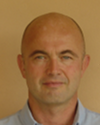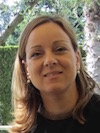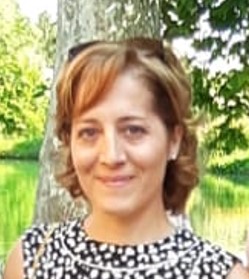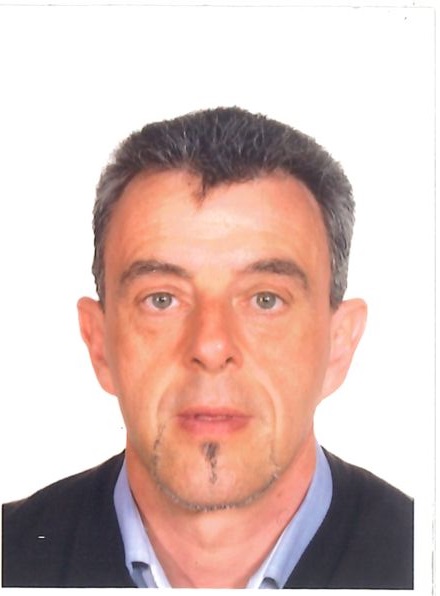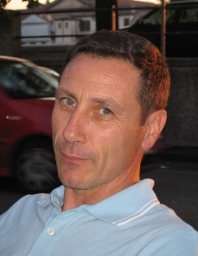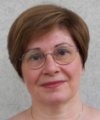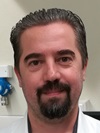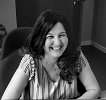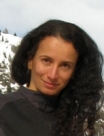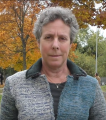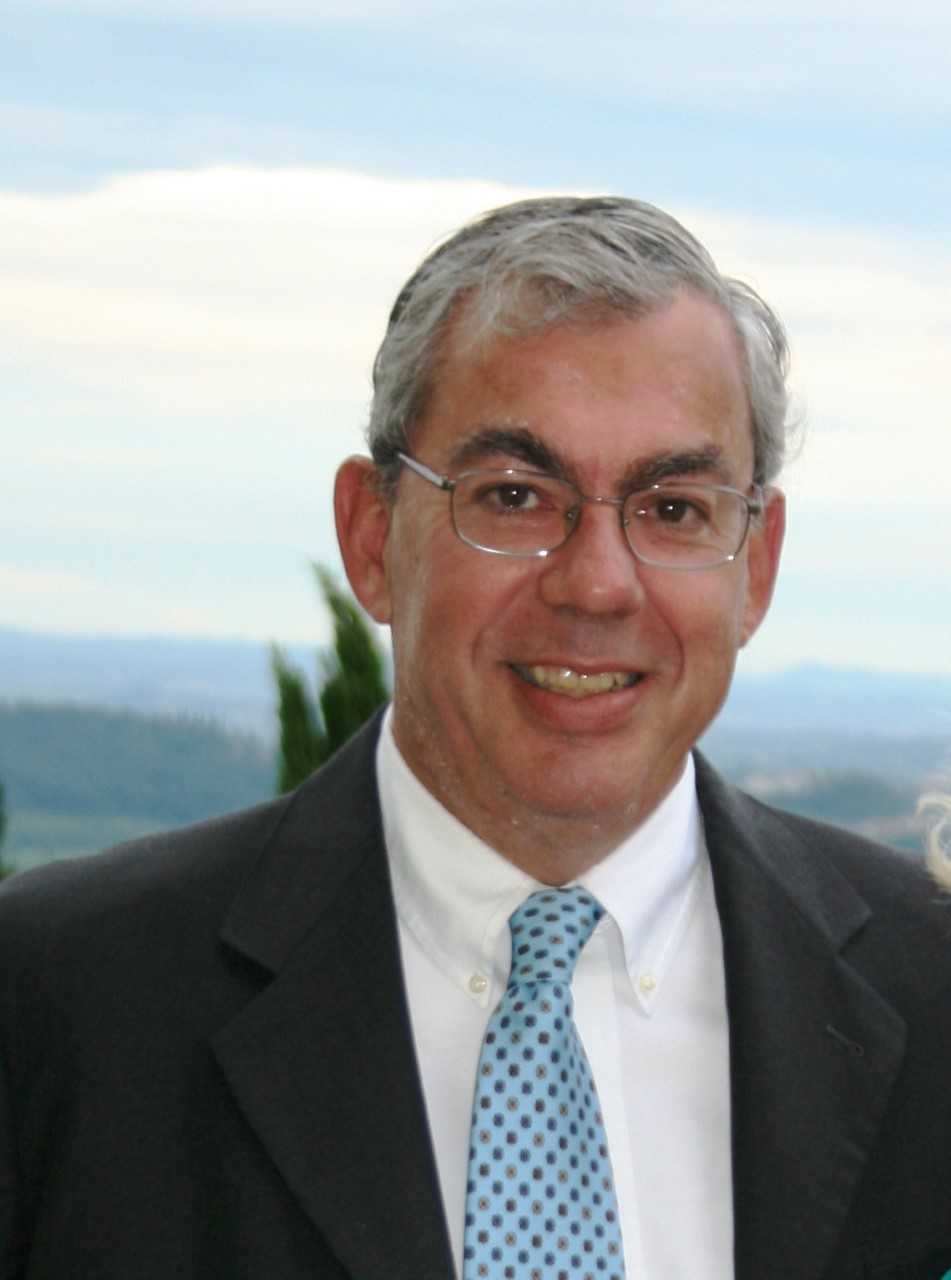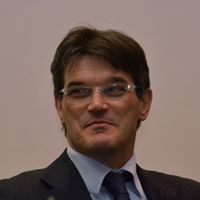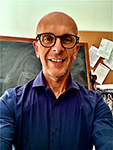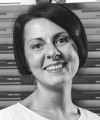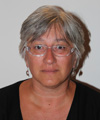Studying at the University of Verona
Here you can find information on the organisational aspects of the Programme, lecture timetables, learning activities and useful contact details for your time at the University, from enrolment to graduation.
Academic calendar
The academic calendar shows the deadlines and scheduled events that are relevant to students, teaching and technical-administrative staff of the University. Public holidays and University closures are also indicated. The academic year normally begins on 1 October each year and ends on 30 September of the following year.
Course calendar
The Academic Calendar sets out the degree programme lecture and exam timetables, as well as the relevant university closure dates..
| Period | From | To |
|---|---|---|
| MOTORIE 1° semestre | Oct 1, 2019 | Jan 24, 2020 |
| MOTORIE 2° semestre | Mar 2, 2020 | May 31, 2020 |
| Session | From | To |
|---|---|---|
| Sessione invernale | Jan 27, 2020 | Feb 28, 2020 |
| Sessione estiva | Jun 3, 2020 | Jul 3, 2020 |
| Sessione autunnale | Aug 31, 2020 | Sep 30, 2020 |
| Sessione straordinaria | Jan 25, 2021 | Feb 26, 2021 |
| Session | From | To |
|---|---|---|
| Sessione Invernale 19/20 | Mar 16, 2020 | Apr 3, 2020 |
| Sessione Estiva 19/20 | Jul 6, 2020 | Jul 28, 2020 |
| Sessione Autunnale 19/20 | Oct 12, 2020 | Nov 3, 2020 |
| Sessione straordinaria 19/20 | Mar 16, 2021 | Apr 9, 2021 |
| Period | From | To |
|---|---|---|
| Festa di Ognissanti | Nov 1, 2019 | Nov 1, 2019 |
| Festa dell'Immacolata | Dec 8, 2019 | Dec 8, 2019 |
| Vacanze di Natale | Dec 23, 2019 | Jan 6, 2020 |
| Vacanze di Pasqua | Apr 10, 2020 | Apr 14, 2020 |
| Festa della Liberazione | Apr 25, 2020 | Apr 25, 2020 |
| Festa del lavoro | May 1, 2020 | May 1, 2020 |
| Festa del Santo Patrono | May 21, 2020 | May 21, 2020 |
| Festa della Repubblica | Jun 2, 2020 | Jun 2, 2020 |
Exam calendar
Exam dates and rounds are managed by the relevant Exercise Science Teaching and Student Services Unit.
To view all the exam sessions available, please use the Exam dashboard on ESSE3.
If you forgot your login details or have problems logging in, please contact the relevant IT HelpDesk, or check the login details recovery web page.
Should you have any doubts or questions, please check the Enrollment FAQs
Academic staff
 paola.cesari@univr.it
paola.cesari@univr.it
Del Pero Giulia
 lonardifabiola@gmail.com
lonardifabiola@gmail.com
 dino.mascalzoni@univr.it
dino.mascalzoni@univr.it
 mariateresa.muraca@univr.it
mariateresa.muraca@univr.it
 alberto.nuvolari@gmail.com
alberto.nuvolari@gmail.com
 angeloluigi.sangalli@univr.it
angeloluigi.sangalli@univr.it
 fabio.sartori@univr.it
fabio.sartori@univr.it
 stefano-venturi@libero.it
stefano-venturi@libero.it
Study Plan
The Study Plan includes all modules, teaching and learning activities that each student will need to undertake during their time at the University.
Please select your Study Plan based on your enrollment year.
1° Year
| Modules | Credits | TAF | SSD |
|---|
2° Year activated in the A.Y. 2020/2021
| Modules | Credits | TAF | SSD |
|---|
3° Year activated in the A.Y. 2021/2022
| Modules | Credits | TAF | SSD |
|---|
| Modules | Credits | TAF | SSD |
|---|
| Modules | Credits | TAF | SSD |
|---|
| Modules | Credits | TAF | SSD |
|---|
| Modules | Credits | TAF | SSD |
|---|
Legend | Type of training activity (TTA)
TAF (Type of Educational Activity) All courses and activities are classified into different types of educational activities, indicated by a letter.
Physical education and games (2020/2021)
Teaching code
4S004082
Teacher
Coordinator
Credits
3
Language
Italian
Scientific Disciplinary Sector (SSD)
M-EDF/01 - PHYSICAL TRAINING SCIENCES AND METHODOLOGY
Period
2° semestre motorie dal Mar 1, 2021 al May 31, 2021.
Learning outcomes
Achieve theoretical and methodological knowledge for an effective professional practice, in particular: • Learn the latest theories and methodologies of teaching a game • Bring to the attention of the students the opportunity to recover the high cultural diversity of games • Strengthen the consciousness of the role of education, of the role of culture, of the role of the expressive art of playing to promote the wellness of the general development of the human being as an individual and his community • Become aware of the relationship between cultures and gaming practices and the adoption of healthy life-styles • Acquire knowledge and skills about traditional games in Italy, in Europe and in the world • Develop and learn the methodologies and techniques about shared rules • Consolidate a methodology and a didactic base for teaching, to watch and to give a mark of motor skills in the practices of games and in traditional sports • Gain practical experience of the gaming activities with the use of specific tools.
Program
The course consists in 24 hours of lessons, organized as follow: a first part theoretical training and information and a second part of practical activities. The minimum frequency to class is recommended for at least the 75% of lessons; for a lower frequency students will need additional studies (on-line support).
Theme 1: GAMES CLASSIFICATION
-Concepts and definitions, theories, game types and classifications.
-Agon (competion), Alea (luck), Mimicry (simulacrum), Ilinx (vertigo).
-Symbols, fictions, dramas, emotions, dreams and fantasies.
-Sensorial games, symbolic games, traditional games, pre-sport games.
-Game families: cataloging.
Theme 2: MOTRICITY AND PSYCHOMOTOR DEVELOPMENT
-From psychomotor skills to praxeology.
-The science of motor-action; the game in the evolutionary stages.
-Game education. The game as socialization. Benefits and dysfunctions of the game.
-Jump, run, throw, grab: basic skills in the game.
-Research, analysis and comparison of the main games. Game tools.
Theme 3: LEARN AND TEACH TO PLAY
-Developing and revealing skills. Motor learning.
-The conduct of the group, the pedagogical triangle.
-Teaching styles: guided, reciprocal. Independent teaching. The didactic action process. Teaching conditions: context. Means and support, assessments. Rules of the teacher/animator.
-Teaching level: acquire, apply, create.
-Movement category: running, jumping, throwing, playing
Theme 4: HIT THE BALL 1
-The figure of the coordinator of the games, the management of them.
-Know the game and its rules.
-Cooperative and competitive situations in sport; from games to sports, sports games and modified sports. --Selection of games: football, handball. Game patterns.
Theme 5: HIT THE BALL 2
-The game in physical prep.
-Confrontation and physical practice in social and recreational sport animation.
-Test. Safety instructions.
-Selection of games: volleyball, basketball, rugby. Game patterns.
Theme 6: GAMES WITH STICKS, BATS AND RACKETS
-With conventional materials, with alternative materials, without materials.
-Natural and artificial space.
-Materials for traditional, alternative sports and recreational games.
Theme 7: PLAY AND ANIMATION
-Animated, socializing, adapted games.
-The game as socialization, heritage and cultural identity.
-Popular and traditional game. Individual games, in pairs, one versus all, paradoxical games.
-Confrontation and physical practice in social and recreational animation sport. The game cards.
Theme 8: AIM SPORT GAMES
-Physical or sensory attitude/phase: Grip, Body position.
-Motor or active phase: The line of sight, The target. The shot method: gestures, body pattern.
-Selection of aiming games. Game cards.
theme 9: SPORTS SPORTS
-Spherical Sports: Pallone col bracciale, Tamburello, Hit ball, Palla eh , Pallone elastico, Pallapugno leggera, Escala i corda, Tlachtli, Palla valenziana, Fistball, Pallonetto ligure, Pallamano frisone, Raspall, Tamburello a muro, Jai alai, Pallone a pugno, Pallamano basca, Pelota a paleta, Tamburello a 3, Picigin, Gioco internazionale, Pallina, Pelota italiana, Llargues, Palla elastica, Fronton internazionale, Extreme ball, Frontenis, Pantalera, Fronton, Balle pelote, Ulama, Galotxetes, Galotxa, Paletta, Spaola, Palloncina, Xare, Tambumuro, Frare, Tambutennis, Park, Caccia.
Theme 10: FIGHT SPORT
-History of combat sports. Modern combat. Types of combat sports. Disciplines with limited contact. Disciplines in full contact. Fighting disciplines. Fencing disciplines. Hybrid disciplines. Combat sport training
Theme 11: ADAPTED SPORTS
-Sports practiced by people with different types of physical, psychomental and sensory disabilities.
-The three main branches: the deaf, the physically disabled (including blind and partially sighted athletes) and psychomentally disabled.
-Organization of the game with respect to the medium, the rules, the social dynamics.
-Disciplines at the Paralympic Summer Games. Disciplines at the Paralympic Winter Games. Non-Parlympic sports. The game cards.
Theme 12: PLAY IN HISTORY, IN ART, IN FOOD
-Game activities of children in the antiquity. The evolution of gaming practices. Archaeological finds. Myth and reality. The game as language.
-Cultural, social and generational transversality. The contribution of archeology. Prehistory. Egyptian civilization. Ancient Greek civilization. Ancient Rome. Strategy games in classical cultures. Board builders.
-The culture of food. Environmental peculiarities. Extinction risk. Ties with the territory, life and historical memory. The colors of food, the Arcimboldi of 2000. The historical and traditional values of our foods. Conservation of food through play. The game in the art world. Recreational and cultural programming. Journey into art: from the Greek world to the contemporary one. Influence of the game on art. Exercise for reading the work of art "children's games" 1560 by Pieter Bruegel: analysis of the 70 games contained in the painting.
| Author | Title | Publishing house | Year | ISBN | Notes |
|---|---|---|---|---|---|
| Berne E. | A che gioco giochiamo? (Edizione 1) | Milano, Bompiani. | 2000 | ||
| Mascalzoni Dino | giro d'italia in 150 giochi | QuiEdit s.n.c. | 2011 | 978-88-6464-125-6 | |
| Gianfranco Staccioli | Il gioco e il giocare | Carocci editore | 1998 | 978-88-430-4625-6 |
Examination Methods
Students' preparation will be assessed through an oral exam that will include questions on the theory.
Moreover, students must present a final work-research that will be discussed during the exam.
The certification exam will be divided as follows:
-Presentation of a ‘Learning Unit’ written at the end of course, containing a suitable indication of references and sources (topic and criteria have to be agreed with the teacher).
-Technical analysis of the methods, playing rules, didactics application and families of the game chosen by the candidate related to the course. Evaluation of the work will be 30 / thirty and published on the list of examination.
If insufficient or lack of class attendance equal to or less than 75% over 24 hours there will be an oral test of knowledge / experiences learned during the course and a depth of the topics related to the program and the recommended books.
Type D and Type F activities
| years | Modules | TAF | Teacher | |
|---|---|---|---|---|
| 3° | Physical bases of exercise prescription | D |
Silvia Pogliaghi
(Coordinator)
|
|
| 3° | Advanced nutrition for sports | D |
Silvia Pogliaghi
(Coordinator)
|
|
| 3° | Sport physiology | D |
Silvia Pogliaghi
(Coordinator)
|
|
| 3° | Methods and techniques for body composition measurement | D |
Carlo Zancanaro
(Coordinator)
|
|
| 2° 3° | Physiology of sport nutrition | D |
Silvia Pogliaghi
(Coordinator)
|
|
| years | Modules | TAF | Teacher | |
|---|---|---|---|---|
| 3° | Theory and pedagogy of nordic walking | D |
Barbara Pellegrini
(Coordinator)
|
|
| 2° 3° | Public health applied to exercise | D |
Stefano Tardivo
(Coordinator)
|
|
| 2° 3° | Statistics applied to movement sciences | D |
Maria Elisabetta Zanolin
(Coordinator)
|
|
Career prospects
Module/Programme news
News for students
There you will find information, resources and services useful during your time at the University (Student’s exam record, your study plan on ESSE3, Distance Learning courses, university email account, office forms, administrative procedures, etc.). You can log into MyUnivr with your GIA login details: only in this way will you be able to receive notification of all the notices from your teachers and your secretariat via email and soon also via the Univr app.
Graduation
List of theses and work experience proposals
| theses proposals | Research area |
|---|---|
| ANTROPOMETRIA E COMPOSIZIONE CORPOREA NEL CALCIO | Various topics |
| ANTROPOMETRIA TRIDIMENSIONALE - ESEMPI APPLICATIVI | Various topics |
| Controllo posturale e locomozione in età evolutiva | Various topics |
| EFFETTO DELLA VIBRAZIONE CORPOREA TOTALE SU PEDANA | Various topics |
| Feedback Aumentativo e Apprendimento Motorio | Various topics |
| Il ruolo della fatica cognitiva nella prestazione motoria e nella percezione corporea: teorie di riferimento e strumenti di indagine | Various topics |
Gestione carriere
Student mentoring
Orario lezioni
L’orario delle lezioni comprende
Lezioni Frontali in aula
Esercitazioni e laboratori
Questi ultimi sono organizzati per gruppi dai singoli docenti responsabili dei corsi.
L'orario è pubblicato nel portale studenti
Modalità di frequenza
Vige l'obbligo di frequenza al 70% come specificato nel Regolamento di ogni singolo corso di laurea e laurea magistrale:
Ulteriori informazioni:
L'accesso alle pagine Moodle dei singoli insegnamenti è vincolato alla compilazione del piano di studi.
App Univr Lezioni, FAQ e guida all'utilizzo sono disponibili al seguente link: orario-lezioni-e-modalita-di-frequenza
Comunicati: Avvisi per studenti
Internships
Internships are aimed at enabling students to gain direct knowledge of the world of work and to acquire specific professional skills.
Internships are carried out under the responsibility of an individual lecturer, and can be carried out in professional firms, public administration bodies and companies recognised by the University of Verona.
Any CFU credits gained by doing internships will be recognised and recorded by the University in accordance with the relevant University regulations in force (Regolamento d’Ateneo per il riconoscimento dei crediti maturati negli stage universitari).
For further information on internships, please go to: https://www.univr.it/it/i-nostri-servizi/stage-e-tirocini.
Student login and resources
Recupero Obblighi Formativi - OFA
I corsi di supporto per il recupero degli Obblighi Formativi aggiuntivi - OFA di Chimica, Fisica, Matematica - sono organizzati annualmente e sono segnalati direttamente nell'orario delle lezioni del 1° anno ► vedi pagina.
Al termine di ciascun corso frequentato gli studenti dovranno sostenere e superare una prova scritta per colmare il debito entro il 15 dicembre dell'anno successivo, per potersi iscrivere al 2° anno.
►Date e orari degli appelli sono indicati nel Calendario Didattico - Calendario Esami.
In caso di mancato superamento degli obblighi formativi entro il 15/12, lo studente resterà iscritto al 1° anno anche per l'anno successivo come ripetente, dovrà sostenere la verifica di recupero in un altro appello e NON non potrà frequentare o sostenere gli esami del 2° anno.
Certificazione medica di idoneità
Riferimenti normativi principali: DM 24 aprile 2013 art. 3, GU 169 del 20-07-2013; Decreto del Ministro della Salute dell’8 agosto 2014 e s.m.i.
Per frequentare le attività dei corsi di Laurea e Laurea magistrale di Scienze motorie è obbligatorio presentare la certificazione medica di idoneità fisica per attività sportiva non agonistica. La certificazione è necessaria per accedere alle attività pratiche-esercitative e al tirocinio.
à COME OTTENERE LA CERTIFICAZIONE
La certificazione - riportante l’indicazione che è stato eseguito l’ECG a riposo - può essere rilasciata da:
- centri o servizi di medicina dello sport delle ASL (ora ATS) e delle aziende ospedaliere
- istituti della Federazione Medico Sportiva Italiana
- centri pubblici o privati autorizzati:
- dai medici di medicina generale di libera scelta, relativamente ai propri assistiti;
- dal medico specialista in medicina dello sport.
L’ECG a riposo deve essere ripetuto annualmente.
E’ ammesso anche il certificato medico di idoneità alla pratica sportiva agonistica, per chi ne fosse già in possesso.
à SCADENZA PER LA PRESENTAZIONE
La certificazione medica deve essere prodotta al momento dell'immatricolazione e, comunque, entro l’inizio delle lezioni alla Segreteria Corsi di Studio Scienze motorie. Spetta agli studenti rinnovarla annualmente alla scadenza - per ogni anno di iscrizione in corso o fuori corso. La Segreteria effettuerà periodicamente dei controlli sulla consegna dei certificati.
NOTA: Studenti immatricolati a seguito di SUBENTRO/RIPESCAGGIO/TRASFERIMENTO IN INGRESSO: se non è possibile rispettare la scadenza di presentazione del certificato sopra indicata, avvisare la Segreteria Corsi di Studio Scienze, scrivendo all’indirizzo certmed.scienzemotorie@ateneo.univr.it
à MODALITA’ DI CONSEGNA
La certificazione va inviata alla Segreteria Corsi di Studio Scienze motorie dalla propria e-mail istituzionale nome.cognome@studenti.univr.it all’indirizzo certmed.scienzemotorie@ateneo.univr.it.
Esami propedeutici
Alcuni insegnamenti del piano didattico sono definiti "propedeutici", perchè permettono di acquisire le conoscenze necessarie per affrontare lo studio di insegnamenti successivi. Di conseguenza, è obbligatorio superare gli esami degli insegnamenti propedeutici prima di sostenere gli esami di un anno seguente. Le propedeuticità presenti sono indicate di seguito nella tabella:
| Anno | Esami propedeutici | Anno | Esami che richiedono il superamento di propedeuticità | |
| 1 | Biologia | prima di | 2 | Fisiologia |
| Anatomia umana | ||||
| 1 | Biologia | prima di | 2 | Biomeccanica |
| Anatomia umana | ||||
| 1 | Biologia | prima di | 2 | Tecniche e metodologie dell'allenamento |
| Anatomia umana | ||||
| Biochimica del movimento | ||||
| 2 | Fisiologia | |||
| 1 | Biologia | prima di | 3 | Tecniche e didattica degli sport individuali e di squadra |
| Anatomia umana | ||||
| Biochimica del movimento | ||||
| 2 | Fisiologia | |||
| Tecniche e metodologie dell’allenamento | ||||
| 1 | Biologia | prima di | 3 | Attività motorie preventive e adattate |
| Anatomia umana | ||||
| Biochimica del movimento | ||||
| 2 | Fisiologia | |||
| Tecniche e metodologie dell’allenamento | ||||
| 1 | Biologia | prima di | 3 | Malattie dell'apparato locomotore |
| Anatomia umana | ||||
| 2 | Fisiologia | |||
| 1 | Biologia | prima di | 3 | Farmacologia e cardiologia applicate all'attività motoria |
| Anatomia umana | ||||
| 2 | Fisiologia | |||

 +39 045 842 5117
+39 045 842 5117



